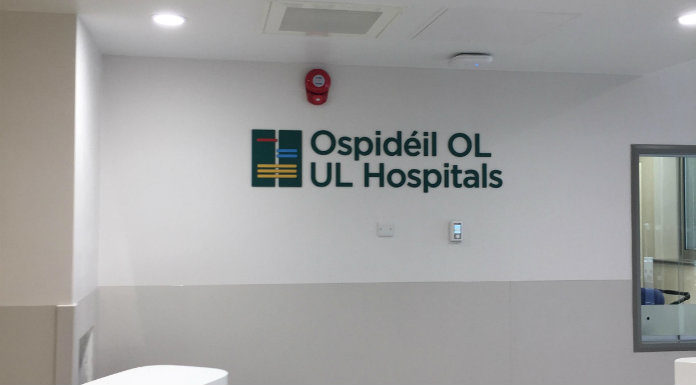The UL Hospitals Group says a number of factors including a significant increase in demand and a rise in urgent referrals in some specialties are to blame for a surge in the numbers facing long waits for outpatient appointments.
Figures from the National Treatment Purchase Fund show a 42% fall in the number of people waiting 12 months for an appointment last month, compared to October 2017, but numbers waiting 18 months have surged by more than 50%.
Increased funding has been announced for the NTPF in 2019, while an Outpatient Action Plan is being finalised by the HSE, the NTPF and the Department of Health, to improve the overall use of resources to tackle long outpatient waiting times.
Clare member of the HSE’s Regional Health Forum West, Councillor Ann Norton, who’s daughter lives with a disability, believes multiple issues need to be tackled to deal with the problem:
Statement From The UL Hospitals Group
THE latest NTPF figures (Oct) for UL Hospitals Group and nationally are in line with expectation.
They reflect national policy as announced by the Minister for Health where a focus would initially be placed on those waiting longest for inpatient and day case procedures.
UL Hospitals Group, has seen an overall decrease in patients waiting longer than 12 months for an inpatient/day case procedure in comparison with the same period last year, the decrease was approximately 42% when comparing October 2017 with October 2018.
In relation to outpatients, the numbers should be seen in the context of over 216,000 outpatient attendances across the Group in 2017. UL Hospitals Group notes the increased allocation to the National Treatment Purchase Fund in 2019 and looks forward to the announcement of the Outpatient Action Plan which is being finalised by the HSE, the NTPF and the Department of Health. This plan is focused on improving overall use of resources to tackle long outpatient waiting times and to ensure more timely access to treatment and care for patients.
In the meantime, earlier this month, UL Hospitals announced that under a nationally funded initiative, Nenagh Hospital has become a national centre of excellence forcataract surgery. All suitable cataract surgery within UL Hospitals Group is to migrate from University Hospital Limerick (UHL) to the new theatres at Nenagh. This hospital is within two hours of the major population centres of Dublin, Cork, Limerick and Galway and, as such, Nenagh is ready to insource patients on ophthalmology waiting lists in hospitals around the country. Under this initiative, Nenagh will have seen 200 surgeries completed by the end of this year and as we move to being a truly national centre, and from one day a week to five days a week, we expect to carry out at least 10 times that number in 2019.
This would not have been possible without the support of the Department, the Acute Hospitals Division and the National Treatment Purchase Fund. Together, we will continue to work on reducing waiting lists in some specialties. In this region, as well as ophthalmology, we know we need to make progress in ENT and we are looking to undertake a similar initiative in Ennis Hospital to make inroads in this subspecialty. A new consultant ENT surgeon will take up post this month, and no less than in Nenagh, we are confident have the staff engagement and the facilities in Ennis to make a significant contribution nationally on ENT waiting lists.
All patients who are waiting for appointments are prioritised according to clinical need with urgent cases being the highest priority. Beyond this, UL Hospitals Group will continue to focus on seeing and treating those who have been waiting the longest.
Among the reasons for the overall increase for the Group is the significant growth in demand; an increase in the number of urgent referrals in some specialties, such as ENT and Orthopaedics, and a shortage of consultants in other specialties. A new consultant surgeon in ENT has taken up a post within the Group and we are recruiting two new consultant orthopaedic surgeons.
In 2018, a particular focus has been placed on the validation of outpatient waiting lists by UL Hospitals Group in line with national plans to address wait times for patients. As part of the validation process, we have been contacting all patients waiting over 6 months to see if they wish to remain on the waiting list. The purpose of this exercise is to ensure that existing resources are optimised and that we improve overall access times for patients. We would expect to see an improvement in the number of patients waiting extended periods of time as a result of this exercise.








